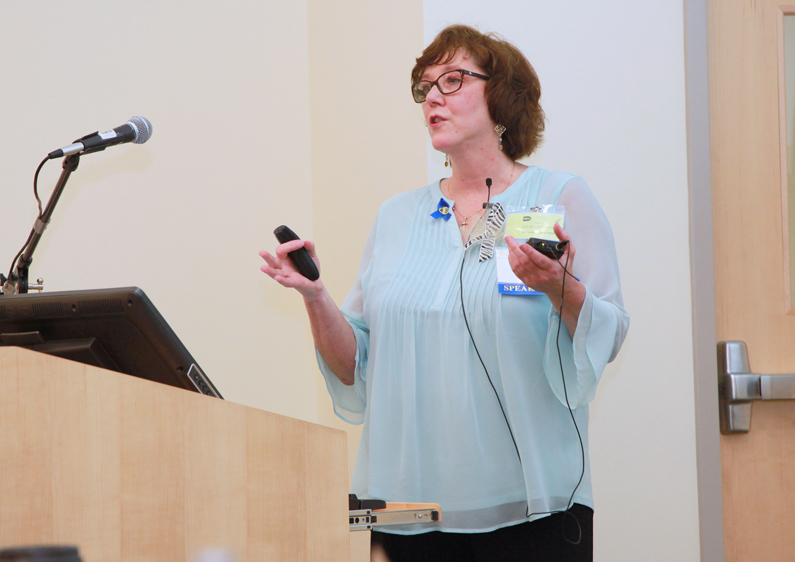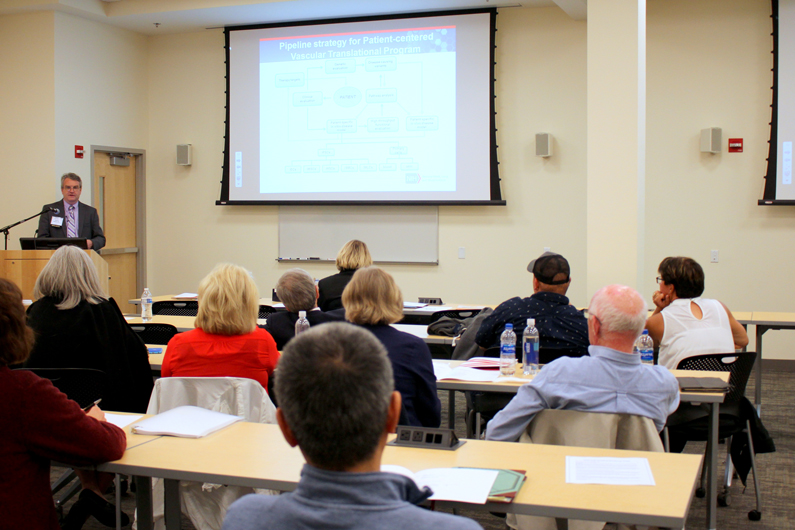"I'm fighting a terrible vascular disease"


A group of clinicians and researchers in vascular medicine, dermatology, hematology and other specialties gathered in the NIH Clinical Center April 27, 2018, for the 2018 International Degos Disease Symposium, hosted by the National Heart, Lung, and Blood Institute. Also known as atrophic malignant papulosis, Degos disease is a perplexing, ultra-rare disease affecting the skin and digestive system with approximately 300 known cases.
Between presentations on epidemiology, genetics, pathology and treatment, two patients spoke about their experience with an exceedingly rare and potentially fatal disease.
The longest known survivor of Degos disease, a gentleman named Roger, spoke about his symptoms, path to diagnosis and worsening condition put him in a coma. Roger discussed how he was able to be treated with a drug on a 'compassionate use' basis. The drug is approved for another rare disease but not yet for those with Degos disease.
Roger concluded his talk by encouraging others to "learn more about the disease. Share your ideas today and carry those thoughts into action tomorrow and in the years to come."
Later in the day, Theresa Slayton spoke poignantly about her alarming skin lesions and abdominal discomfort, and her own research leading her to suspect Degos disease.
"There was almost no information and seemingly no treatment," she said.
Slayton had to search to find specialists and to discover that dietary adjustments could help the digestive discomfort. She spoke of the importance of keeping hope alive while fighting to understand and overcome the poorly understood disease.
Together, the comments from each presenter were a vivid reminder of the challenges rare disease patients face in getting answers, finding support and holding on to hope.

